Queer Places:
83 Main St, Wethersfield, CT 06109
Juilliard School of Music, 60 Lincoln Center Plaza, New York, NY 10023
Columbia University (Ivy League), 116th St and Broadway, New York, NY 10027
Yale University (Ivy League), 38 Hillhouse Ave, New Haven, CT 06520
106 Perry St, New York, NY 10014
Willowbrook Cemetery
Westport, Fairfield County, Connecticut, USA
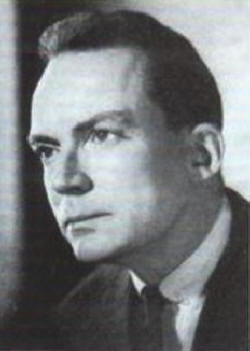 John Francis Mehegan (June 6, 1916 – April 3, 1984) was an American jazz pianist, lecturer and critic.
The American composer Leonard Bernstein
dedicated a piano composition to Mehegan in his 1948 collection Four
Anniversaries.[7]
Bernstein was attracted to Mehegan and he and
Marc Blitzstein always used to go to Mehegan's gigs. Mehegan's wife, Gay Griscom Mehegan, said, "John was a remarkably attractive man. Brilliant, funny, cynical, he conveyed a masterful presence. He entered a room like a hurricane, sweeping into it in his trench coat with the collar turned up -- and everywhere people's heads would turn. He was extremely left politically, fiercely independent, flaunting, with a mocking sense of humor. He spent 17 years on the Juilliard faculty and never agreed to attend a party."
John Francis Mehegan (June 6, 1916 – April 3, 1984) was an American jazz pianist, lecturer and critic.
The American composer Leonard Bernstein
dedicated a piano composition to Mehegan in his 1948 collection Four
Anniversaries.[7]
Bernstein was attracted to Mehegan and he and
Marc Blitzstein always used to go to Mehegan's gigs. Mehegan's wife, Gay Griscom Mehegan, said, "John was a remarkably attractive man. Brilliant, funny, cynical, he conveyed a masterful presence. He entered a room like a hurricane, sweeping into it in his trench coat with the collar turned up -- and everywhere people's heads would turn. He was extremely left politically, fiercely independent, flaunting, with a mocking sense of humor. He spent 17 years on the Juilliard faculty and never agreed to attend a party."
It appears Bernstein tried to be faithful to his wife, but even in the first year of marriage he invited Mehegan to participate in a jazz festival Bernstein was running at Brandeis.
Mehegan, a jazz pianist and a graduate of Juilliard, who later taught there and at Yale, was the composer of the incidental music for
Tennessee Williams's A Streetcar Named Desire; very sharp, very independent, masterful, politically leftist, quite funny, too. And though married to a woman, he was hardly the man to repulse Bernstein, with whom a long and intimate relationship ensued.
A kind of pattern was emerging, the troublesome aspects of which were obscured
by Bernstein's appointment to direct the New York Philharmonic—a much better
fit than Boston—and by his subsequent celebrity career as conductor, teacher,
and composer, he being in critic James Oestreich's words, "America's first
native-born conducting superstar."
Mehegan was born in Hartford, Connecticut, on June 6, 1916, although he sometimes gave the year as 1920.[1] He began playing the violin in 1926 and played for seven years without enjoying it.[1] He initially taught himself to play the piano by matching his fingers to the notes played on a player piano.[1] He went on to study at the Hartt School of Music in Hartford.[1] He had gigs in the Massachusetts area, and then moved to New York in 1941.[2]
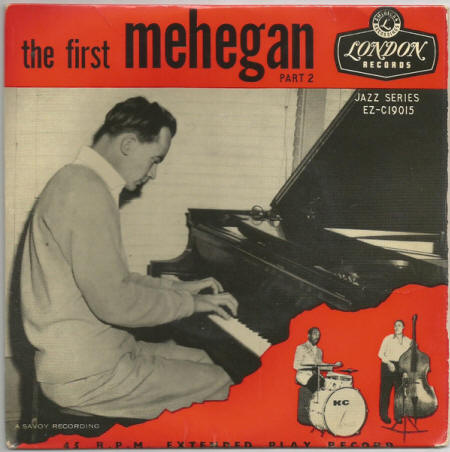
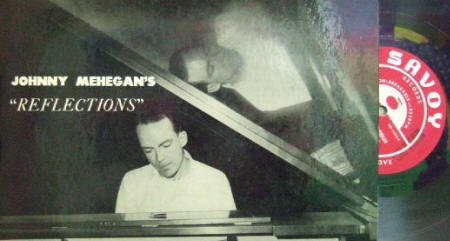
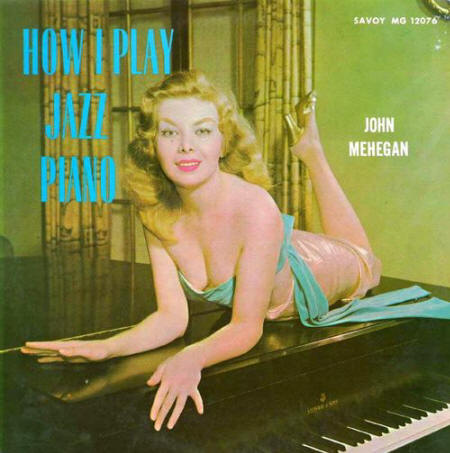
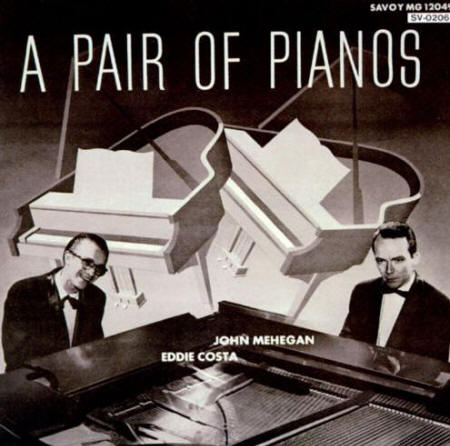
In New York, Mehegan played in clubs.[1] He recorded four quartet tracks as
a leader for Savoy Records in 1945.[1][2] In the same year, he became teaching
assistant to pianist Teddy Wilson in the jazz department at the Metropolitan
Music School,[3] and became the head of its jazz department in 1946; a
position he held for around a decade.[1] In the early 1950s, his From
Barrelhouse to Bop album was the first release by Perspective Records; it
consisted of spoken introductions followed by performances in the style of
other jazz pianists.[4] He also taught at the Juilliard School of Music
(1947–64), Columbia University Teachers College (1958 to 1961 or 1962), the
University of Bridgeport (1968–77) and Yale University (1974–83).[1] He wrote
the incidental music for A Streetcar Named Desire which he performed on
Broadway for two years.[3] Mehegan was questioned by the House Un-American
Activities Committee, where he was an uncooperative witness.[5] He was the
jazz critic for the New York Herald Tribune from 1957 to 1960.[3] "A summer
concert, lecture, and research tour of South Africa in 1959 was cut short
because he encouraged black musicians, but while there he recorded with the
group which was about to become the Jazz Epistles".[1] His final recordings,
as a trio, were made in 1960.[2] He wrote numerous books on jazz, including
the Jazz Improvisation series, which sets out the basic principles of jazz,[6]
and was published between 1959 and 1965.[1]
Mehegan died in New Canaan, Connecticut, on April 3, 1984.[1] According to Tara Mehegan Rashan, John's daughter, Leonard Bernstein wrote letters to
him from all over the world, as he lay dying of a malignant brain tumor in a nursing home. The love these men shared was intellectual, political, and of course musical.
My published books:


BACK TO HOME PAGE

 John Francis Mehegan (June 6, 1916 – April 3, 1984) was an American jazz pianist, lecturer and critic.
The American composer Leonard Bernstein
dedicated a piano composition to Mehegan in his 1948 collection Four
Anniversaries.[7]
Bernstein was attracted to Mehegan and he and
Marc Blitzstein always used to go to Mehegan's gigs. Mehegan's wife, Gay Griscom Mehegan, said, "John was a remarkably attractive man. Brilliant, funny, cynical, he conveyed a masterful presence. He entered a room like a hurricane, sweeping into it in his trench coat with the collar turned up -- and everywhere people's heads would turn. He was extremely left politically, fiercely independent, flaunting, with a mocking sense of humor. He spent 17 years on the Juilliard faculty and never agreed to attend a party."
John Francis Mehegan (June 6, 1916 – April 3, 1984) was an American jazz pianist, lecturer and critic.
The American composer Leonard Bernstein
dedicated a piano composition to Mehegan in his 1948 collection Four
Anniversaries.[7]
Bernstein was attracted to Mehegan and he and
Marc Blitzstein always used to go to Mehegan's gigs. Mehegan's wife, Gay Griscom Mehegan, said, "John was a remarkably attractive man. Brilliant, funny, cynical, he conveyed a masterful presence. He entered a room like a hurricane, sweeping into it in his trench coat with the collar turned up -- and everywhere people's heads would turn. He was extremely left politically, fiercely independent, flaunting, with a mocking sense of humor. He spent 17 years on the Juilliard faculty and never agreed to attend a party."




